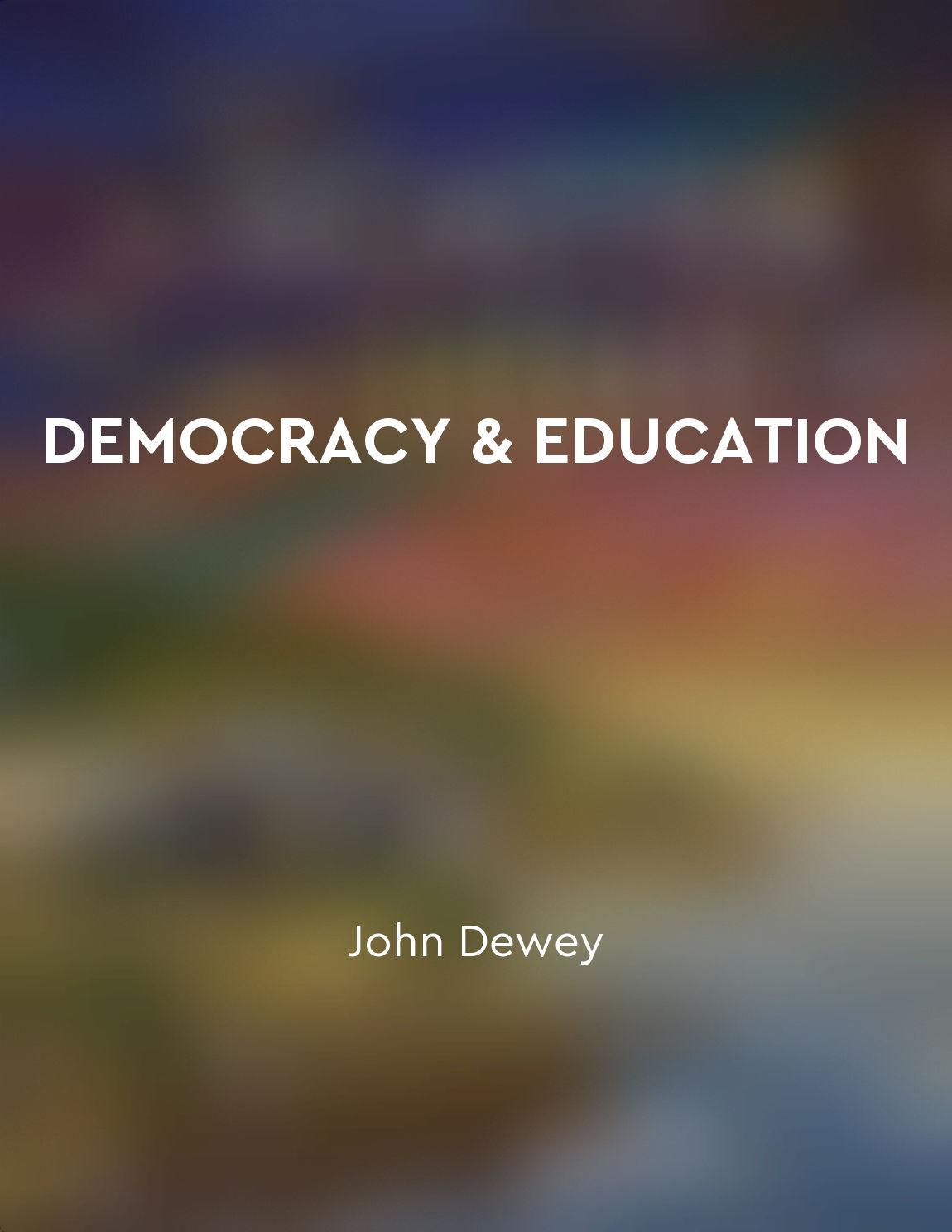Democracy requires informed citizens from "summary" of DEMOCRACY & EDUCATION by John Dewey
The functioning of a democratic society relies heavily on the active participation of its citizens. To truly engage in the democratic process, individuals must be informed about the issues at hand. This knowledge enables citizens to make thoughtful and rational decisions that contribute to the common good. Without a well-informed populace, democracy runs the risk of becoming a mere facade, with decisions being made based on ignorance or misinformation rather than reason and evidence. Informed citizens are essential for democracy to thrive because they possess the necessary tools to critically evaluate information and ideas. By being able to discern fact from fiction, citizens can hold their elected representatives accountable and participate effectively in the decision-making process. Informed citizens are also better equipped to engage in meaningful dialogue with others, fostering a diversity of perspectives and promoting a more inclusive and democratic society. Education plays a crucial role in shaping informed citizens. Schools are instrumental in providing students with the knowledge and skills needed to navigate the complexities of a democratic society. Through a well-rounded education that emphasizes critical thinking, problem-solving, and civic engagement, students can develop into active and informed participants in the democratic process. In a democracy, the power ultimately lies with the people. It is therefore imperative that citizens are informed and engaged in order to ensure that their voices are heard and that their interests are represented. Without informed citizens, democracy risks devolving into a system that is easily manipulated by those in power, leading to corruption, inequality, and the erosion of democratic values.- Democracy requires informed citizens who are able to critically evaluate information, engage in meaningful dialogue, and actively participate in the democratic process. Through education and a commitment to lifelong learning, individuals can fulfill their role as active and responsible members of a democratic society. By empowering citizens with knowledge and skills, democracy can truly flourish and serve as a model of governance that upholds the principles of equality, freedom, and justice.
Similar Posts
Diversity can enrich social networks and build social capital
Diversity within social networks has the potential to bring about a rich tapestry of perspectives, experiences, and skills. Whe...

Fight for equality for all
The idea of fighting for equality for all is not just a lofty goal or a noble sentiment. It is a fundamental principle that lie...
We must cultivate a culture of critical thinking
The urgent need for a culture of critical thinking cannot be overstated in our current democratic landscape. It is imperative t...
Love and justice are at the heart of democracy
Love and justice are the twin pillars that uphold the democratic structure. Without the foundation of love and justice, democra...
Democracy values the protection of minority rights
The concept that democracy values the protection of minority rights is a fundamental pillar of any democratic society. Democrac...
Democracy requires a balance between liberty and equality
A functioning democracy is a delicate balance between the values of liberty and equality. These values can sometimes conflict w...
Tocqueville critiques the potential for tyranny in democratic societies
In democratic societies, Tocqueville argues that there is a danger of tyranny emerging from the very system that is meant to up...


